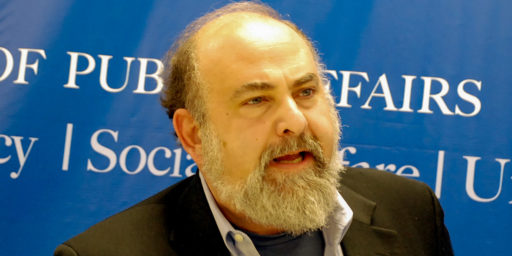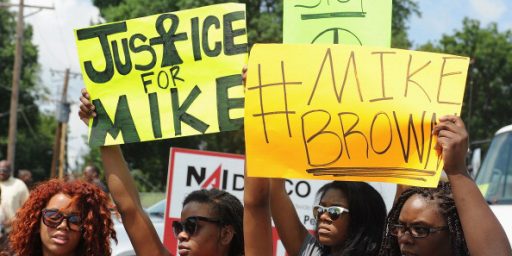BROKEN WINDOWS
Kevin Drum and Matthew Yglesias both offer some interesting commentary on this Mark Kleiman essay on Broken Windows theory–George Kelling and James Q. Wilson’s idea that paying attention to minor crimes (vandalism, aggressive panhandling, graffiti, etc.) will help create a safer climate and a decrease in major crimes (murder, robbery, etc.). Rudi Guliani employed a variant of this with great success in NYC.
Kleiman makes the interesting point that Broken Windows is actually two rather distinct theories. The first (“A”) has to do with “signaling”–sending a message to criminals that bad behavior simply won’t be tolerated. The second (“B”) says that the same people who are commiting the minor crimes also commit most of the major crimes, so going after petty offensers tends to by happenstance nab plenty of major offenders.
Kleiman finds little evidence for the first but more for the second. I was familiar with both arguments but never considered them separate. Kleiman points out, though, that the nuance is quite important here:
One set of offenses — or even non-offenses, if police are skilled at making pretextual traffic stops to search people who look as if they might be bad actors for guns or drugs, or just to check on whether they have outstanding warrants — might produce the highest yields of arrests of very bad actors, as provided for in BW (B), while another set yields the maximum in order preservation and neighborhood protection, the goal of BW (A). It might still be that a smart police department would recognize that a strategy of making arrests that can be justified under BW (A) is likely to be more sustainable politically, but otherwise the two theories lead to somewhat different operational approaches, if all you want to do is reduce the Part I crime numbers. That’s why Wilson’s point is crucial: neighborhood protection through reduction of disorder has value of its own, independent value, in addition to its contribution to reducing serious crime.





While only knowing BW in general I think there is a part C: the non-criminal public, knowing the police are taking crime seriously, are willing to go back to once crime-invested areas. This might explain the rebirth of NYC’s Times Square.
—